The second installment in the Doctor Strange franchise has finally hit the big screen, giving viewers a chaotic look into what the multiverse has in store for the MCU.
Doctor Strange in the Multiverse of Madness
Directed By: Sam Raimi
Written By: Michael Waldron
Starring: Benedict Cumberbatch, Elizabeth Olsen, Benedict Wong, Xochitl Gomez, Rachel McAdams, CHiwetal Ejiofor
Release Date: May 6, 2022
Multiverse of Madness is the culmination of over seven years of storytelling, beginning with Wanda’s first appearance in Avengers: Age of Ultron, through the first Doctor Strange, the team’s battles against Thanos, and even more recently both WandaVision and Spider-Man: No Way Home. The long-awaited sequel manages to close a box on many plotlines that have appeared over the years but easily manages to set up where the next phase of the MCU is headed.
I was pleased to see that this film feels like a Doctor Strange movie. Whilst Wanda plays a large role throughout the film and certainly helps move the plot forwards, the story clearly follows Strange and how he helps America Chavez.
Multiverse of Madness is a true spectacle. Raimi effortlessly puts his stamp on this film, with many of the camera movements, frames, and visuals, in general, being very reminiscent of his previous films. Doctor Strange 2 often feels like a superhero film from the ’00s, particularly in the way it is edited, but in a way that feels warm and familiar rather than silly. It’s a fine line this film usually manages to stay on the right side of. It’s a film you need to witness for yourself, as the visuals play a large part in what makes the film so enjoyable.
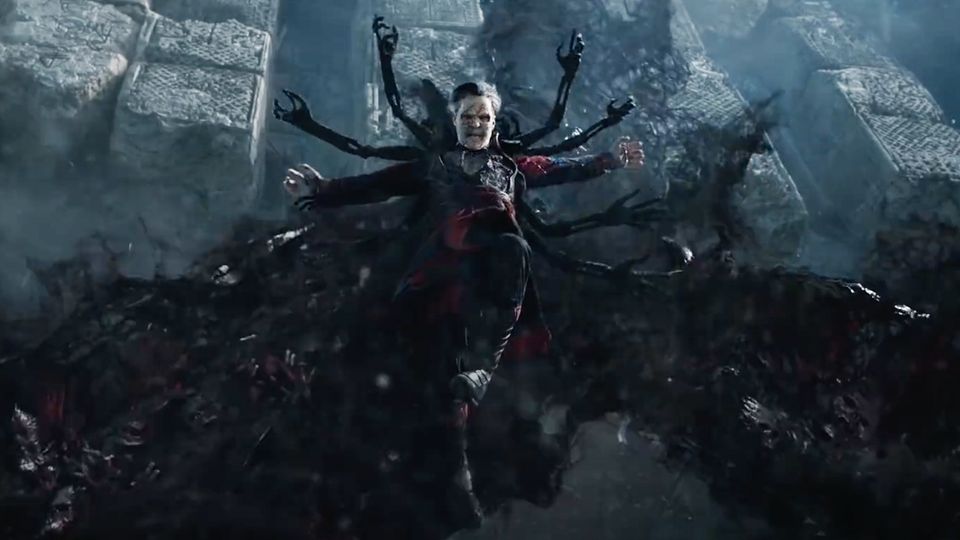
The more graphic and creepy scenes in Multiverse of Madness make this film a great entry-level horror, but probably also make it one you might want to reconsider bringing younger children to. There are moments in this film that had the adults in my cinema grimacing and jumping. It could easily be an uncomfortable or frightening watch for those wary of the horror genre and children expecting a standard MCU movie. Complete with unsettling imagery and a few jump scares for good measure, this is one of the first MCU properties to fully submerge itself into a genre of its own.
Benedict Cumberbatch does a fantastic job reprising his role as Doctor Strange (alongside multiple different versions of Strange across the Multiverse), but it’s Elizabeth Olsen who steals the show in all of her scenes. Olsen captures the heartache of a mother grieving the loss of her family; a supernatural being capable of destroying universes corrupted by dark magic, and at times, a loving, joyful mother raising her children. She switches between these roles seamlessly, making her a delight to watch. Many of the more horror-esque scenes revolve around Wanda, which Olsen takes in stride.
Xochitl Gomez enters the MCU as America Chavez, a teenager with the power to transport between universes. Gomez grounds this rather out-of-this-world film, despite her power set giving her the ability to get out of any world and into a new one. When America is in trouble, you feel she really is in trouble, and that is in no small part down to Gomez. Benedict Wong returns as Wong and has much of his story separate from Strange throughout the film; really giving Wong a chance to shine. Rachel McAdams returns as Christine Palmer, thankfully with more screentime than in her previous appearance, and Julian Hilliard and Jett Klyne return as Billy and Tommy.
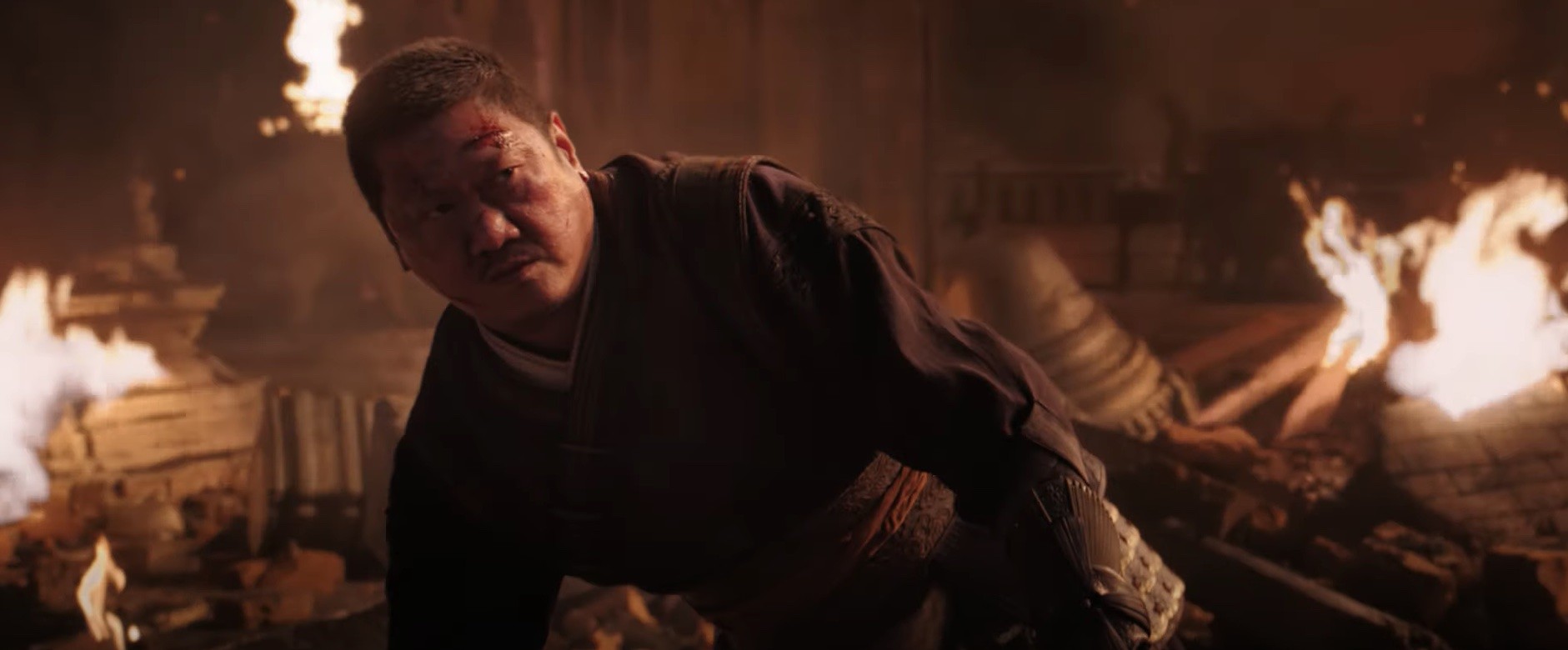
Although Multiverse of Madness nails many aspects, it is not a faultless film. CGI at times—particularly at the beginning of the film—is very shaky. The film is largely reliant on CGI throughout to create eerie atmospheres and mindboggling monsters, so these CGI blunders took me out of the movie.
The plot isn’t the neatest MCU plot ever. The film at times feels like a big MacGuffin hunt, with characters spending a lot of their time on screen simply searching for what they need. Since my issues with the plot really are simply used to get characters from A to B, I’m able to move past the MacGuffins as it’s the character moments and interactions between them all which make the film shine.
Whilst I do not think this movie needed to be hitting 2:30-3:00 hour marks, I do think it could have benefited from an extra 10-15 minutes. There are moments throughout the film where characters will say things that left me asking questions, but were quickly swept under the rug. None of these moments were movie-ruining, however, I would have appreciated a deeper look into some aspects of the film, particularly surrounding Wanda.
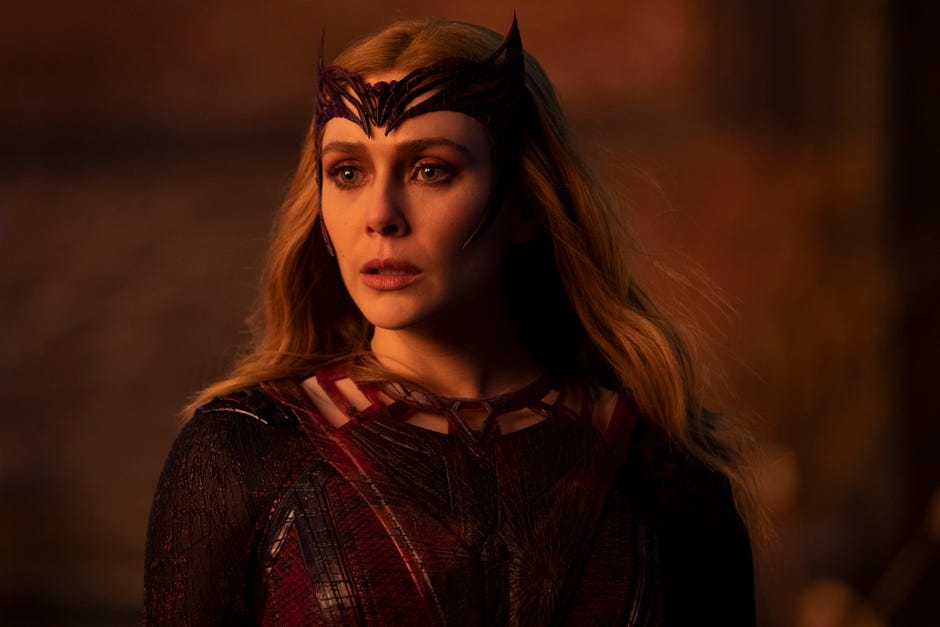
Whilst the film generally lived up to, and in some places exceeded expectations, there are downfalls to the Doctor Strange sequel. These however are not down to the actors, and the mishaps are relatively easy to look past.
WARNING: Spoilers Ahead!
If you haven’t seen Multiverse of Madness yet, you might want to head back now before we delve into spoilers!
The implications of this film for the wider MCU cannot be understated. Aside from the multiverse now creating an ongoing risk, Multiverse of Madness leaves room for a lot of storytelling.
Whilst the film technically leaves Wanda’s fate ambiguous, it seems unlikely that this was her last appearance. Having only officially been The Scarlet Witch for the last moments of WandaVision and one film, there’s still a lot of room for Marvel to tell stories revolving around Wanda. With the MCU seemingly setting up The Young Avengers, a team that Wanda’s sons Billy and Tommy are a part of in the comics, there’s a lot more potential from all three of these characters.
The biggest takeaway I had from this film is that Raimi knows how to handle Wanda’s powers. She singlehandedly takes down the sorcerers at Kamar-Taj, manages to break out of the mirror dimension, and obliterates anybody in her way, most noticeably, the Illuminati. Not only does Wanda benefit from Raimi’s creativity, but the sorcerers too. I can’t say watching a literal musical battle between two versions of Doctor Strange was on my radar at any point, but it worked brilliantly with the weird tone of this film. It’s brilliant to see the MCU’s magical characters do strange magic (no pun intended).
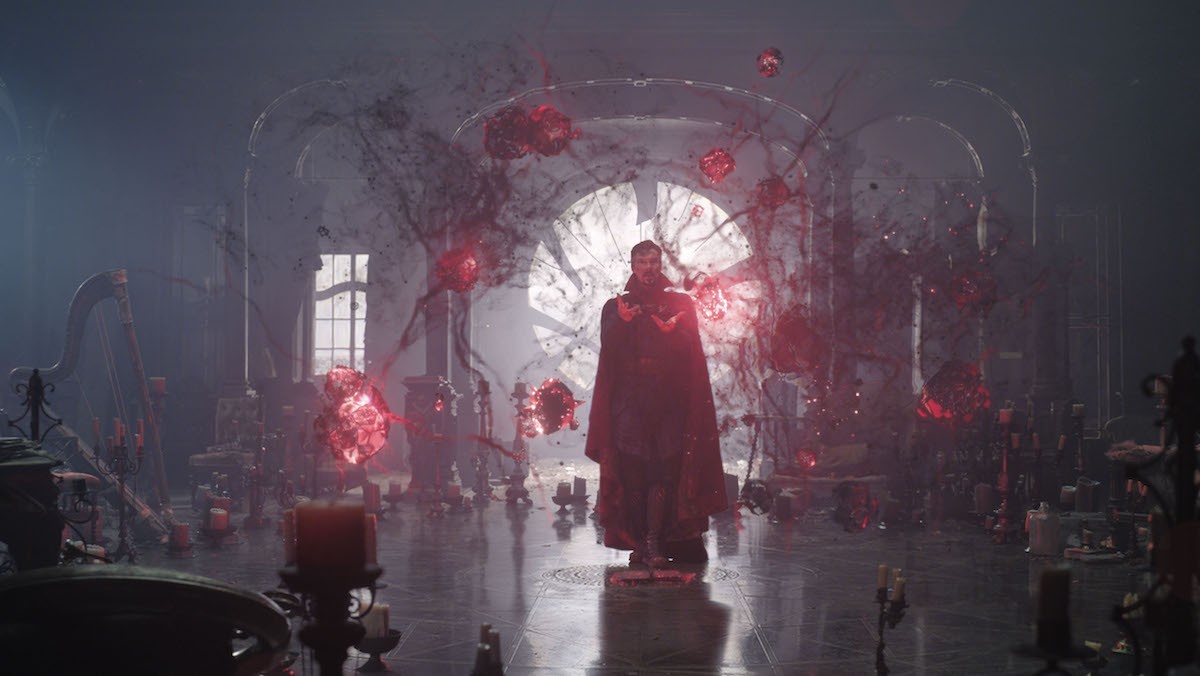
Whilst multiple members of the Illuminati were shown in TV spots and trailers, there are two members who were absent from all promotions. Fans of Inhumans most likely will have recognized Anson Mount reprising his role as Black Bolt, but more surprisingly, we are introduced to Mr. Fantastic played by none other than John Krasinski who has been a fan favorite for the role for years. Whilst no official announcement has been made regarding the cast for Marvel’s upcoming Fantastic 4, given the outcry for him to be cast as Reed Richards, it seems unlikely this is just a one-time thing, and we can probably expect to see Krasinski reprise this role for the main MCU timeline.
The end of Multiverse of Madness also shows the consequences for Strange after using the Darkhold. As stated in the film, the Book of the Damned corrupts those who read it. An alternate version of Strange who has been in possession of the Darkhold for years has developed a third eye as a result of his usage, and MCU Strange develops the same eye before the film’s credits roll. I audibly gasped at this scene, and am finding myself trying to work out where I think this plotline may next show up!
However, where the MCU usually shines at creating suspense for their upcoming projects, I felt underwhelmed. The end credits scenes, to me, were a little disappointing. In the first scene, Charlize Theron appears as Clea, who appears to tell Strange about an incursion he’s caused. Whilst it’s always exciting to see a new character, this scene felt disjointed, especially after having seen Strange suffer the ramifications of using the Darkhold, I believe the next time we saw any version of Strange may have been better saved for continuing that story. The second scene is a comical scene that shows the man selling pizza balls in an alternate reality Strange and America visit finally stopping hitting himself, which doesn’t really add anything to the wider MCU.
There were also moments throughout Multiverse of Madness where I’d have appreciated a bit more detail in the script. As mentioned previously, none of these were film-ruining, but they did leave me wanting to learn more, and I’m not sure whether or not we will. I found myself, particularly wanting to know about Billy and Tommy in other universes. Strange repeatedly tells Wanda that her children weren’t real, to which she eventually tells him that in every other universe, Billy and Tommy are alive and real. Strange seems briefly confused, and it isn’t mentioned again. I found myself wanting to know more about their existence elsewhere in the multiverse. Was Vision still their father? Are they created by her magic everywhere?
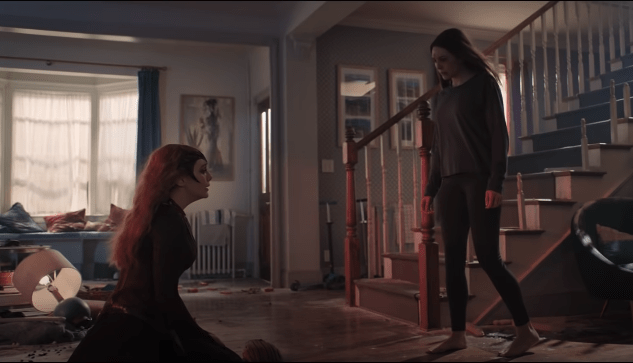
There was also the occasional line that I found a little difficult to hear. Notably, when Christine fights back against the souls of the damned, she says something along the lines of “Go back to hell, demons.” Whilst it didn’t feel too out of place with the style of the film, it did immediately make me think of a character in a video game. There is also a moment when America realizes how to control her powers, where she goes to attack Wanda whilst saying “Mmhmm”, and Wanda responds with a similar noise but in disagreement. I’m not sure why, but I just found that interaction to be very cringey, but maybe that was just me!
My biggest issue with the film however is simply the books. So many books! The film opens with America and alternate Strange trying to reach a book, then it’s revealed that Wanda has also been using a book, but this is a bad book. The only way they can defeat Wanda is to look for a good book. The bad book is destroyed, and Wanda then finds a place where the spells from the bad book are carved into the walls. Meanwhile, Strange finally tracks down the good book, but now that book has been destroyed too. Luckily though, the new multiverse he winds up in has another version of the bad book, and in the end, Wanda realizes her mistakes all by herself (and then destroys a lot of bad books).
This isn’t inherently an issue with the plot. Many films use MacGuffins and it serves as a way to get the characters moving within the story well. My main issue is that after I’d sat down and thought about the film for a bit, I suddenly thought about just how much of this film is spent with characters looking for what they need – it’s a lot! The books, Wundagore, even America. I think this is another reason why a little extra length to the film may have gone a long way. Having the characters spend more time away from searching may have made this feel like less of an issue.
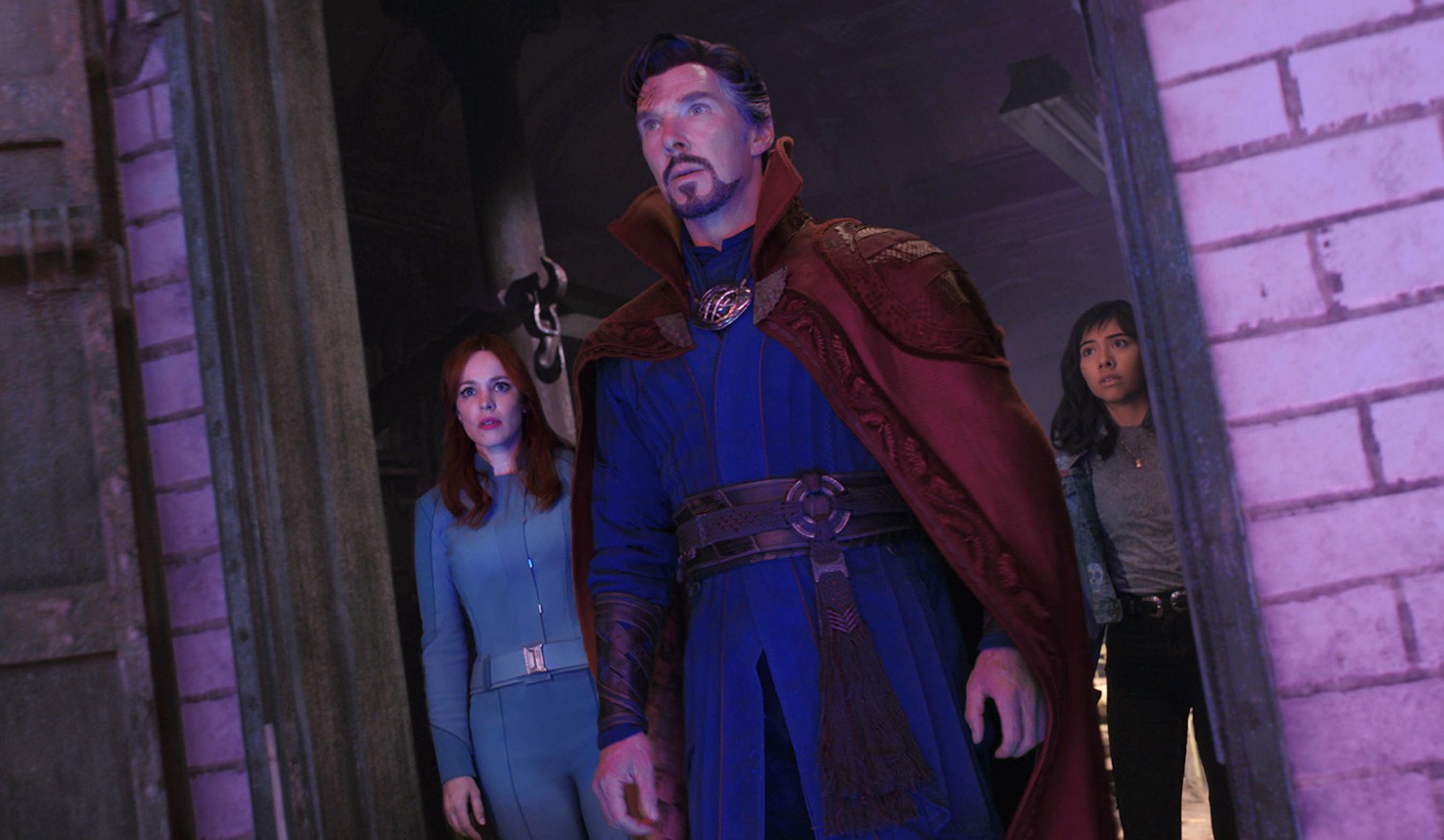
Multiverse of Madness‘ true strengths is simply down to how creative and unusual it is. Raimi does a great job creating the first MCU horror film. When Wanda exits the mirror dimension, the way her body contorts and stretches was outright creepy, and some of the Illuminati deaths really felt they were on the edge of that 12 ratings, particularly with Black Bolt. The editing really feels reminiscent of early superhero films, with overlays and fades, and very dramatic music. Despite this though, it doesn’t feel out of date, it feels like a beautiful homage to early superheroes, something Raimi himself was such a large part of.
This film is a delight to switch off and watch. The visuals are mesmerizing, from a strange paint dimension to Wanda battling a courtyard full of sorcerers. It’s colorful, fast-paced, and engaging at all moments. I didn’t find myself bored at any point during the film. Sure, it isn’t a perfect movie, but I can’t think of any film that doesn’t have its faults. Multiverse of Madness catapults audiences into what the multiverse can do for the MCU, and does what it sets out to do well. I look forward to seeing where all of these characters end up after the madness they’ve experienced.

